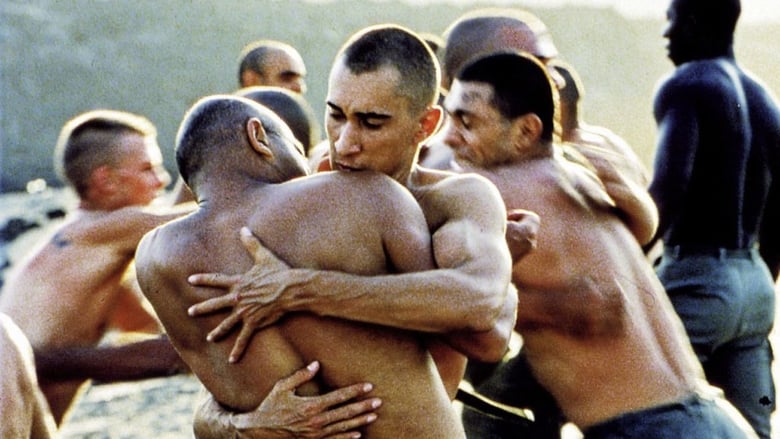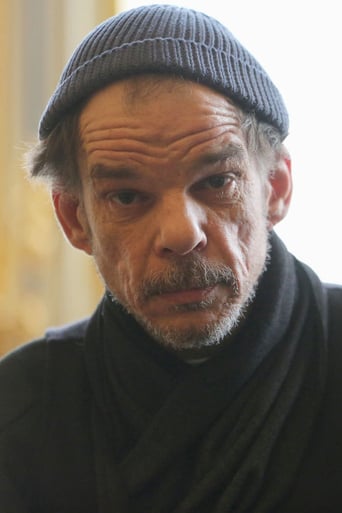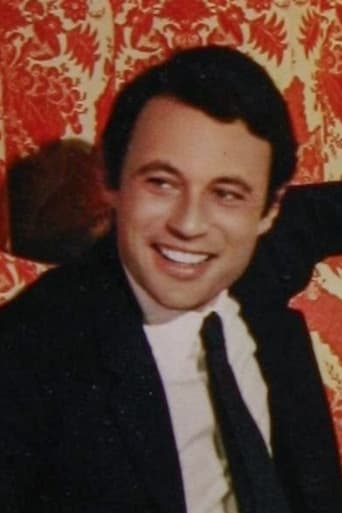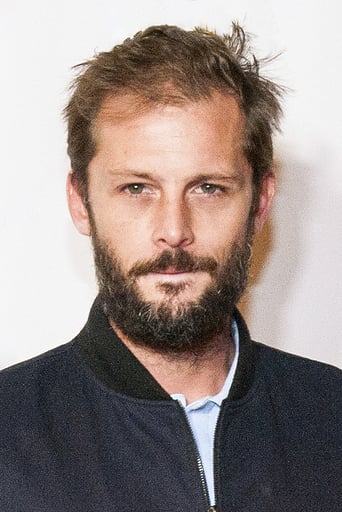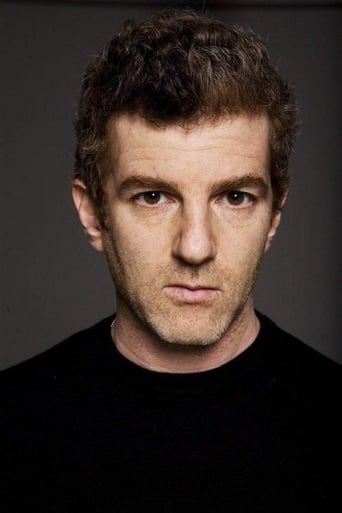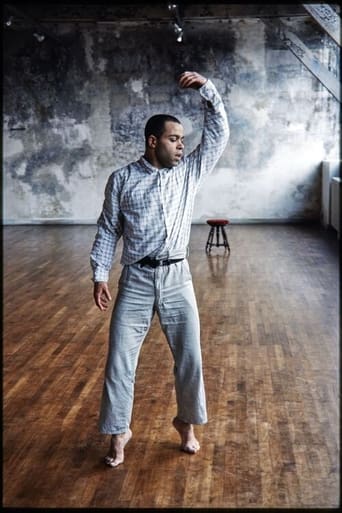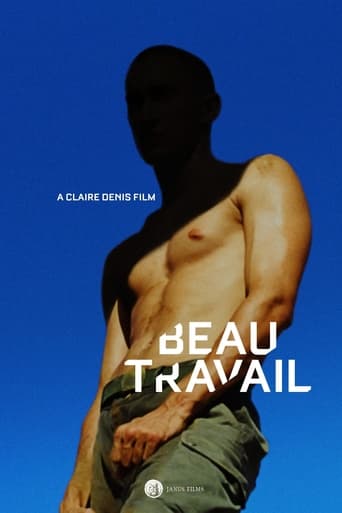
Beau Travail
March. 31,2002 RForeign Legion officer Galoup recalls his once glorious life, training troops in the Gulf of Djibouti. His existence there was happy, strict and regimented, until the arrival of a promising young recruit, Sentain, plants the seeds of jealousy in Galoup's mind.
Similar titles
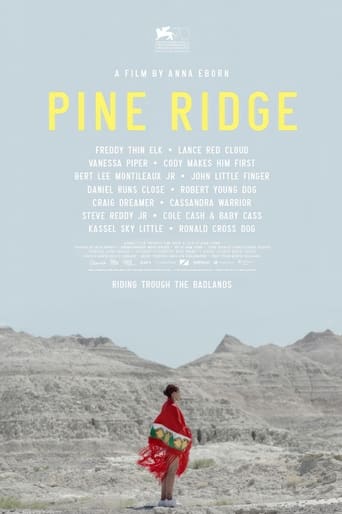
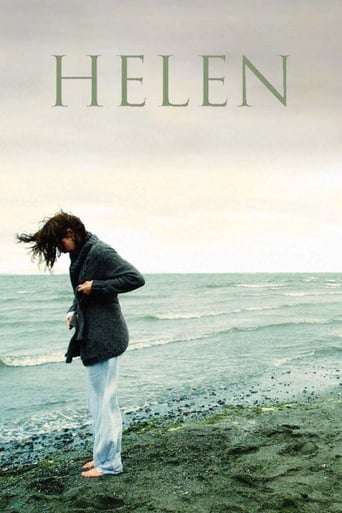
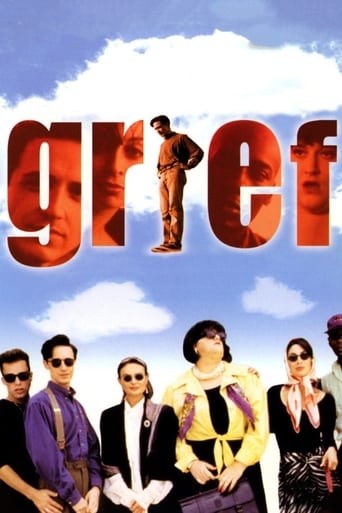
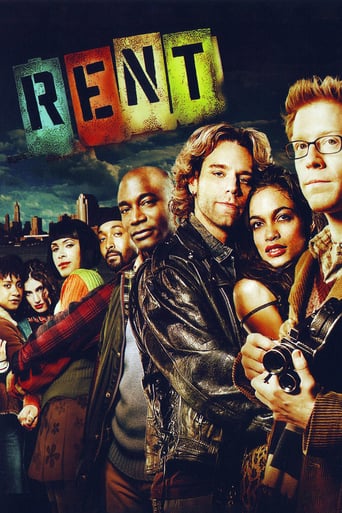
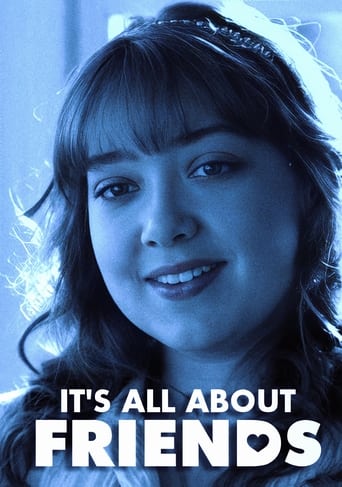
You May Also Like
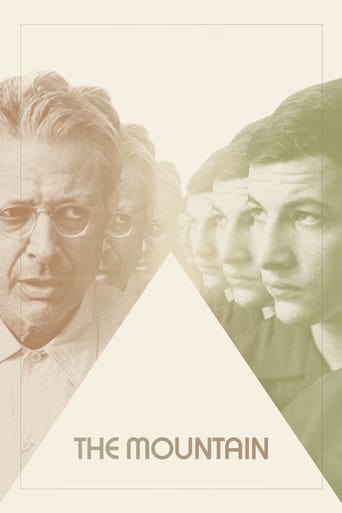
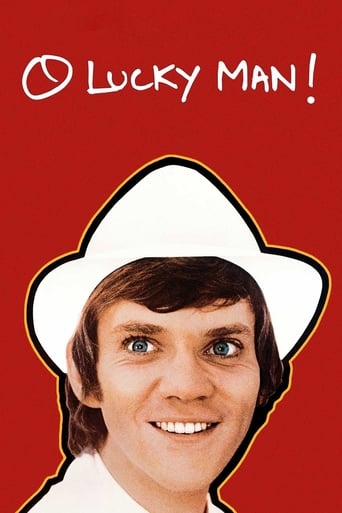
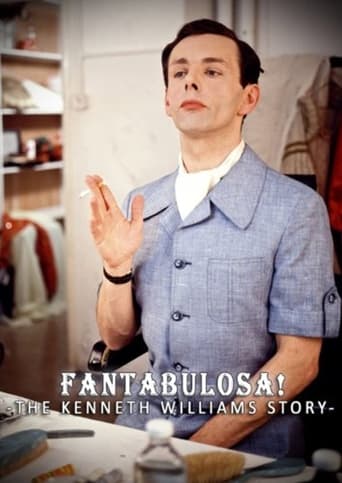
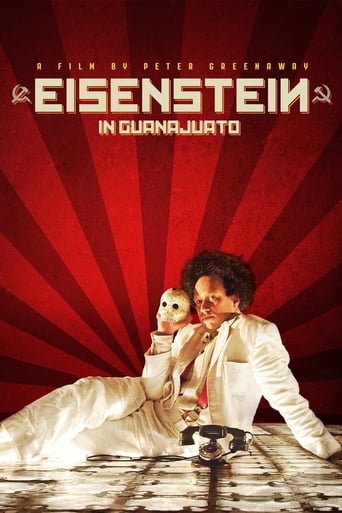
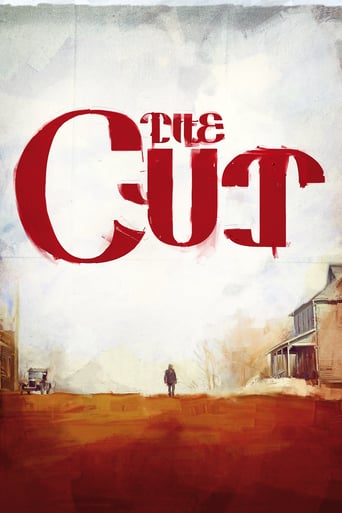

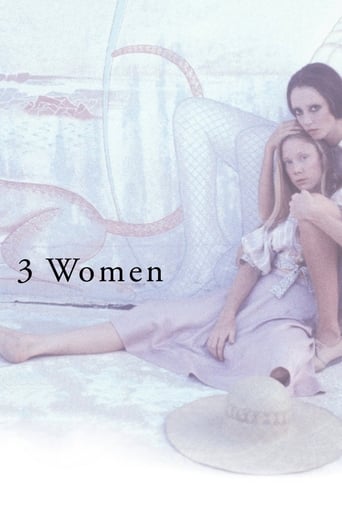
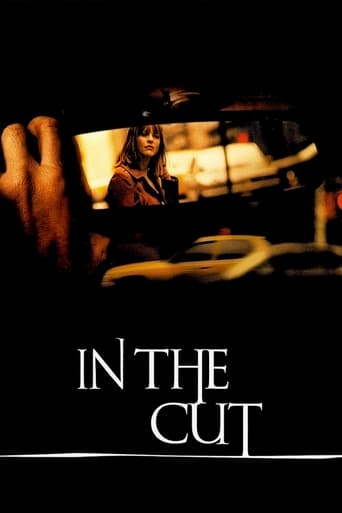
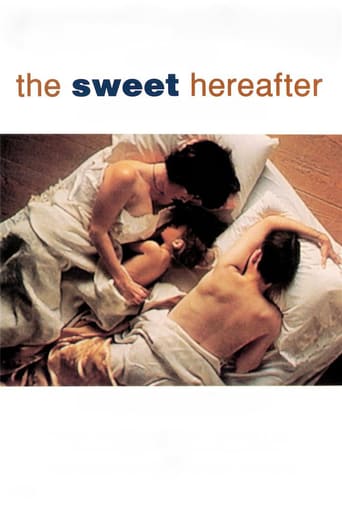
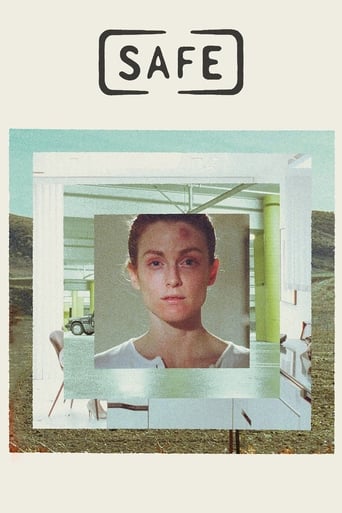
Reviews
Too many fans seem to be blown away
i must have seen a different film!!
Absolutely the worst movie.
The biggest problem with this movie is it’s a little better than you think it might be, which somehow makes it worse. As in, it takes itself a bit too seriously, which makes most of the movie feel kind of dull.
"Gold in the mountain, and gold in the glen, and greed in the heart, heaven having no part, and unsatisfied men." - Melville Claire Denis directs "Beau Travail". The film's loosely based on several Herman Melville poems ("The Night March" and "Gold in the Mountain"), as well as Melville's "Billy Budd", a maritime tale which questioned man's thoughtless submission to various forms of authority (military, media, biblical, political etc). Denis' film swaps the novella's maritime setting for the sandy deserts of Djibouti, a country in Eastern Africa. Her protagonists are soldiers in the French Foreign Legion. They're stationed in Djibouti to do the neo-Imperialist biddings of France and (unofficially) the US, who to this day maintain violent, dictatorial puppet regimes in the country. The site of the only "official" US military bases on the African continent, the country is also used as a staging ground in an overall strategy to dominate the Horn of Africa, the Gulf of Aden and the Arabian Peninsula. From Djibouti, various plots were, and continue to be, mounted to destabilise Ethiopia and Somalia."Different viewpoints count," Sergeant Galoup (Denis Lavant) narrates at the start of the film. He's speaking in hindsight. The film then jumps from Galoup's apartment in France to the deserts of Djibouti, several months prior. Here Galoup feuds with Gilles, a fellow soldier whose physical beauty, social standing and strength inexplicably make him jealous. Later Galoup orders Gilles to trek across the African desert without water and with a tampered compass. The man almost dies, leading to Galup's swift court-martial. Significantly, Gilles is rescued by a group of Djiboutis. Other scenes focus on the persecution of black officers within the Foreign Legion. The film ends with close-ups of Galoup's veins, quietly pumping blood, before a beautiful sequence in which he dances to Corona's "The Rhythm of the Night". More than Melville, key influences on the picture are Jean-Luc Godard's "Le Petit Soldat" and Resnais' "Muriel". Both dealt with the Algerian war, a then-taboo subject which led to both films being attacked and banned. Denis' film maintains the structure and voice-over narration of Godard's film, linkages which are made explicit by the military superior in her film being named after the hero of Godard's. They're also played by the same actor (Michel Subor). Interestingly, the voice over narration in both films are designed to echo each other. "I have a lot of time ahead of me," the narrators of Denis' film begins, precisely the line which ends Godard's picture. The message is clear. History rolls on, and France's imperialist doings didn't end with Algeria. Denis spent much of her childhood in Djibouti. She wrote "Beau Travail's" script herself and teamed up with female cinematographer Agnes Godard for the shoot. The duo create a film which plays like a series of dreams within dreams, mirages within mirages, memory fragments constantly dancing and fusing and fluttering off into the wind. The film unfolds like dance, ethereal, hazy and liquid. Most of its running time consists of shots of soldiers training, working, exercising and waiting. These sequences are simultaneously banal and highly choreographed, the men's bodies bending to some unspoken dance routine. Throughout the film Denis captures the dangers of machismo, male egos and a kind of simmering hunger for violence. But her imagery is both homo-erotic and neutering; these warriors are feminized, painted as infants, small boys, sensitive, confused, pitifully childish and overly emotional. Denis softens everything, turns masculinity into something weak and soft and round, which indeed was always the unspoken core of even "traditional masculinity". Still, these soldiers are dangerous. And they are dangerous precisely because of their weaknesses. Most of the film functions as a dreamy allegory for the white man's desire to violently assert himself over the Other, be they African or fellowman; to deny the Other's culture, voice, customs, practises or right-of-governance. Galoup in particular is obsessed with control, organisation and the meticulous. Some have said the film is about Galoup's "homosexuality", but this misses the point. Whilst all sexuality is on some level violent, the film itself is almost completely asexual. The soldiers have been conditioned to repress love, not sex, and it is this conditioning which flies in the face of the men's homo-social love, which in turn results in violent blow-back. The film's title means "beautiful work", referring ironically to the Empire's work in Africa, and of course its long-standing rationalisations for bloodshed. The film's title is also a command, a call to do "good work" rather than the devil's deeds. Much of the film is sprinkled with shots of African women, who exist outside the soldiers' story. Like a Greek chorus, they're positioned to both witnesses white cruelty, silently judging from afar, and to mock the petty men skirmishing below them. The gyrations of these African women to pop songs is later mirrored to Galoup's own dance sequence (no rehearsals, shot in one take), in which his ego softens, he symbolically turns his back to a reflection of himself and he finally cuts loose. This is the only moment in the film in which Galoup shifts from a watcher and subject - and by extension a master - to an object. He relinquishes control and allows us to possess a piece of him. Denis' work frequently deals with the Empire's relationship with Africa ("White Material", "No Fear, No Die", "Chocolat", "35 Shots of Rum" etc). Of these, "Beau Travail" is perhaps her most unconventional film. See too "35 Shots of Rum", arguably a better film, which uses Jean Renoir as a springboard as Denis uses Godard here. 8.5/10 – Worth two viewings.
Abstract film, told by contrasts, stylized swathes of life, Claires Denis stumbles upon little that is new here, but something here intrigues me a lot, most of it in the first half.The rites, rituals and ceremonial pomp by which army units in the line of fire choose to mythologize and invoke a story of heroic braggadoccio, which Claires Denis approaches with a curious air of the solemn and the mocking, I only briefly experienced in my short time with an infantry regime. I served most of my army time in the Technician Corps, the inglorious greasemonkeys, repairing tanks or slacking. But the tedium of army life is our shared legacy with the Foreign Legion or the Special Ops.Denis subverts this, in mocking feminism reducing that tedium to the meticulous ironing and creasing of uniforms and laundry. The savage beast is thus shown to be domesticated, fussing over a crease. It's been a man's cinema this first century, so perhaps we should get accustomed to the scorn and irony of female directors getting back at us. Nevertheless she makes a cutting remark, that fastidiousness (a matter of order and appearances) is accomplished with these creases.Inside the discotheque, where the strobe lights and Arab pop beats are equally kitsch and otherworldly, the woman is mysterious and alluring, exudes promises of sexual danger. In this game of seduction, the Legionnaires are rapacious, overly eager boys, crossing and recrossing before the seductive female gaze and smile. This first part for me is two images. The flickering shot of an Arab girl's face, gleaming with strobing colorful lights, and the shot of Legionnaires etched in silhouette in an empty street by night.Here lies the brilliance of Denis though. We know the emerging story of a cruel superior taking an unfathomable dislike to the innocent footsoldier from Billy Bud, Herman Melville's short story, and how that innocence of face invites a hatred that seethes deeper, but Denis reworks this entirely in terms of cinema. Looking at the sergeant's face we can read the portents of evil to come, but she further paints it with pictures.Ideals don't matter here, so Denis aptly carries her tragedy out to a sunbaked rocky desert. Perhaps she understood what she was doing as an opera, but in those scenes where we see men flexing their muscles or performing curious rituals out in the open air, the bombast of music and image verges on camp. I don't know much about camp though, so this doesn't concern me overmuch. She also gives us a tracking shot and a wistful tune in the soundtrack, which I find both to be beneath the filmmaking she exhibits in the rest of the film.Elsewhere she gives us images of colonial guilt, a popular subject of the European intellectual, where for example a process of Legionnaires carry a black man, then they switch and he carries a white man on his shoulders. The Djibouti natives of that desert mostly observe this ritual of male aggression with indifference though, curiosity or compassion.A lot of what the film does is only fair, and although thematically it leaves me unfulfilled, the apogee for me is the lasting impression. Of which Beau Travail leaves a strong one.
Films with traditional narratives are all right, I guess, but once in a while it becomes necessary to immerse yourself in a movie that eschews complete narrative coherence. Beau Travail, which follows a tale similar to Melville's Billy Budd, is one such movie. It's not confounding in the manner of an Eraserhead; you will not find yourself forever scratching your head, wondering what on earth the director was aiming for. Quite the opposite: It's a languid dissection of one (noticeably ugly) man's attempt to destroy a thing of beauty--Sentain. What's most interesting to me is that, in the sand of Djibouti, Sentain is not the only beautiful man, nor is he the only thing of beauty. Galoup's desire to destroy Sentain is, as a result, slightly arbitrary and therefore more resonant than it would be in another setting. What is astounding, and slightly confounding in this film, is its slightly elliptical story-telling. The scenes here do follow a chronology, but, simultaneously, layer upon one another. The moments depicted could occur at any moment in relation to any other moment. The precise connection between one scene and the next is not entirely necessary to watch the film. This is a frustrating position for some viewers, I suppose, because it demands a little more of your attention. However, the feelings conjured by this sort of narrative style are immensely pleasurable. I feel, watching this movie, as if I am floating, eyes-closed, upon the sea at night; the loss of concrete perception thrills and frightens you at the same time.Such storytelling also gives Beau Travail a hallucinatory quality that complements the equally hallucinatory visual scheme. Claire Denis is among the most impressive visual stylists working in cinema today. She has a sense of color, composition, and light that is both painterly and remarkably cinematic. Her framing and compositions are not quite epic, but they approach that feeling. All in all, Beau Travail is truly a handsome work and one that I urge adventurous movie- lovers to seek out.
... but I guess I'd like it like other very personal Claire Denis movies. Mauvais Sang from Leos Carax and with Denis Lavant is also a personal favorite and I've seen it quoted somewhere. Just because a movie is stylish doesn't mean it's bad. Unstylish movies? Lots of them... Claire Denis succeeds in creating a very personal climax that makes for movies to be remembered long after you've seen them. Beau Travail would translate literally as "Beautiful Work" but I think the best translation would be "Nice Job" as in "You did a nice job, here". With the ambiguity of job meaning both work and occupation. I don't think "Good Work" is a proper translation like I've seen here and there.
Top Streaming Movies











